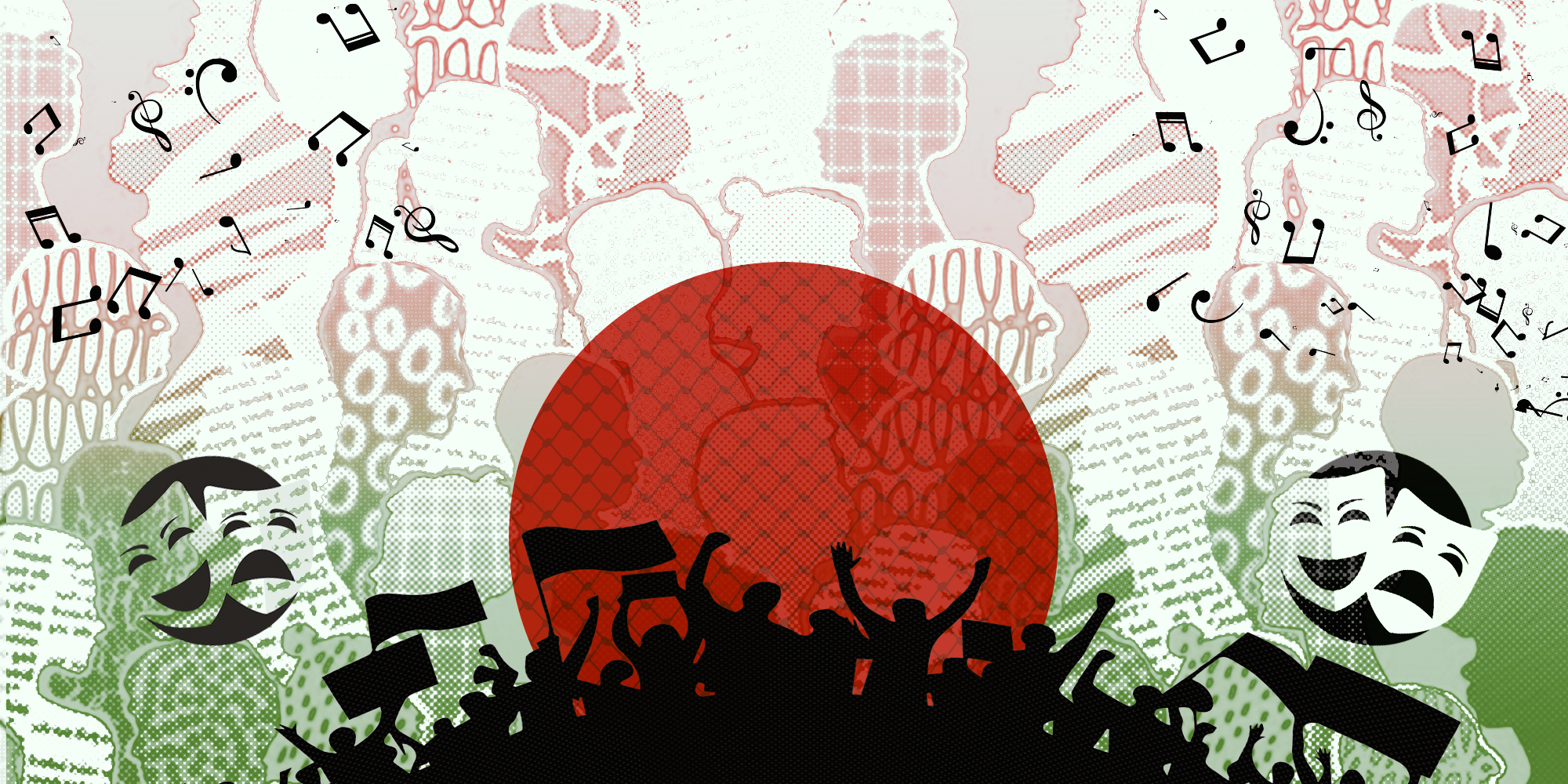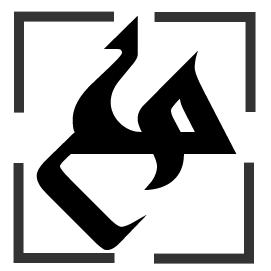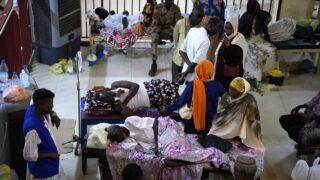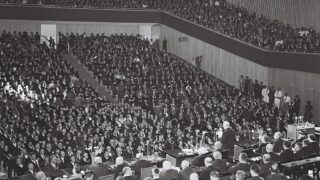" This file was produced as part of the activities of the Independent Media Network on the Arab World. This regional cooperation brings together Maghreb Emergent, Assafir Al-Arabi, Mada Masr, Babelmed, Mashallah News, Nawaat, 7iber and Orient XXI."
It's difficult to think about cultural production in the Arab world without considering the political context in which it unfolds. Culture is not merely a mirror of reality—it is part of reality's very structure, shaped by its movements and transformations. Over the past decade, as political life and public space have steadily contracted across many countries in the region, culture has felt the impact both directly and indirectly. This influence manifests through reduced funding, closed venues, explicit and implicit censorship, and a gradual disconnect from the public.
____________
Folders :
Why Does Football Matter to Us?
____________
But this impact is neither uniform nor unidirectional. In Jordan, for instance, the sidelining of culture in public policy has contributed to theater's decline, though the erosion of political life and public spaces is not the sole cause. Conversely, certain forms of cultural expression in Tunisia—from soccer ultras to street graffiti—appear to be carving out alternative spaces when official venues are shut down. In Egypt, we witness how systematic repression has devastated the independent cultural landscape, yet this hasn't prevented the emergence of prison literature as a form of memory and individual resistance. In Yemen, writers turn to narrative as an inner refuge from war and collapse. In Algeria, culture seeks alternative spaces to reshape cultural discourse away from censorship and top-down control. In Lebanon, new initiatives are emerging to challenge the cultural centralization long dominated by Beirut. These efforts—particularly after the recent Israeli aggression—have taken on fresh urgency as they work to revive a broader collective identity, connecting cultural action to place and belonging.
It's impossible to consider culture today without thinking about Palestine. The ongoing genocide in Gaza confronts art with its most fundamental questions: What does it mean to write, paint, or exhibit while cities are bombed and entire families are erased? In such moments, artwork becomes both witness and survivor—as seen in the works at the recent Sharjah Biennial, which carried the remnants of bodies, homes, and memory into the exhibition space. This represents not only a moment of cultural production but also one of questioning art's relevance and expression's capacity to resist erasure.
It Is Not Just About Gaza and Palestine
18-01-2025
In this collection, we attempt to trace how culture interacts with the shrinking political sphere, avoiding generalizations or seeking necessarily "inspiring" models. Some texts illuminate how culture can create alternative spaces when other avenues are closed, while others examine the profound effects of restriction. Throughout these cases, common questions emerge: How can culture survive in systems where politics is suppressed and public life is stifled? Can writing, singing, or painting restore what is gradually being taken from people? Or do they simply remind us of what was, or what still endures?
Following Cultural Evolution
In this dossier, we track the development of these experiences. In Tunisia, the sound of ultras in soccer stadiums seems to represent the last remaining public space where collective protest is permitted. The article from Nawaat explores how ultras groups have become a political and cultural force expressing social anger and waging daily battles against censorship and restrictions, using songs, chants, and t-shirts as tools of expression and confrontation.
From stadium stands to city walls, we also read from Nawaat about graffiti art, which flourished after the Tunisian revolution before beginning to decline as security control returned and public space narrowed. The text traces the transformations of this resistant visual language and questions its ability to continue when threatened with both physical and symbolic erasure.
In Jordan, theater faces not direct suppression but rather neglect through cultural policies that don't prioritize it. 7iber’s report traces this sector's erosion, revealing a crumbling support structure, a disappearing audience, and hollow festivals that mask cultural poverty. Here, expression isn't silenced—it's left to die quietly.
In Lebanon, we travel with Mashallah News to Tripoli, where the "Rumman" cultural space emerged as an attempt to break Beirut's centralization and create a venue for expression and gathering in a city long suffering from marginalization. The project launched after the October 2019 uprising but gained new meaning after the Beirut port explosion. In 2024, during the Israeli aggression against Gaza and southern Lebanon, it became a space linking cultural expression with political anger, reclaiming belonging to a collective cause in a moment of widespread loss. In this context, Rumman functions not only as an artistic platform but as a place that redefines the relationship between culture and society from outside the center.
In Algeria, where the cultural field continues operating under strict official censorship, some experiments are working to break this framework by creating independent spaces for discussion and creativity. Maghreb Emergent's article examines how some digital and informal spaces are becoming platforms for redefining the relationship between artists and audiences, outside state supervision, in attempts to create critical culture free from official discourse.
In Egypt, the dossier takes us to the heart of institutionalized repression that has affected independent cultural life since 2013. However, the article from Assafir Al-Arabi follows how writing continues to slip through the cracks—whether as prison literature, alternative digital platforms, or independent cinema documenting current events. It doesn't change everything, but it prevents forgetting.
From writing as resistance, we move to writing as an attempt to understand loss. In Yemen, where war and its tragic consequences devastate daily life, writers turn to fiction as if narrative were the only viable language. The article from Orient XXI traces the novel's recent flourishing as a way to reorganize chaos when reality becomes incomprehensible.
These questions reach their peak when we arrive at Palestine. In a moment when cities are destroyed and entire families are wiped out, art becomes both witness and testimony. The article from Mada Masr follows Palestinian artists from Gaza participating in the Sharjah Biennial, where their works traveled from rubble to exhibition space, carrying memory, pain, and resilience. Here, art is not seen as luxury but as a final act of survival.
An Incomplete Algerian Symphony
28-02-2021
From abroad, through the diaspora's perspective, this report from Babelmed gives voice to hip-hop artists of Arab origin in Italy, who use music as a language of protest and identity. Refusing to be reduced to mere migrants, they sing in their own dialects and pain to establish their presence in a society that doesn't recognize their full belonging. In this experience, culture reclaims its role as a tool of recognition and protest even when it transcends geography.





